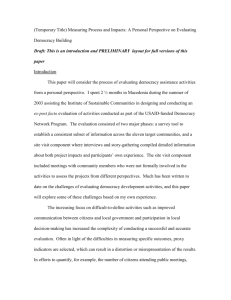Concept Teaching Overview
advertisement
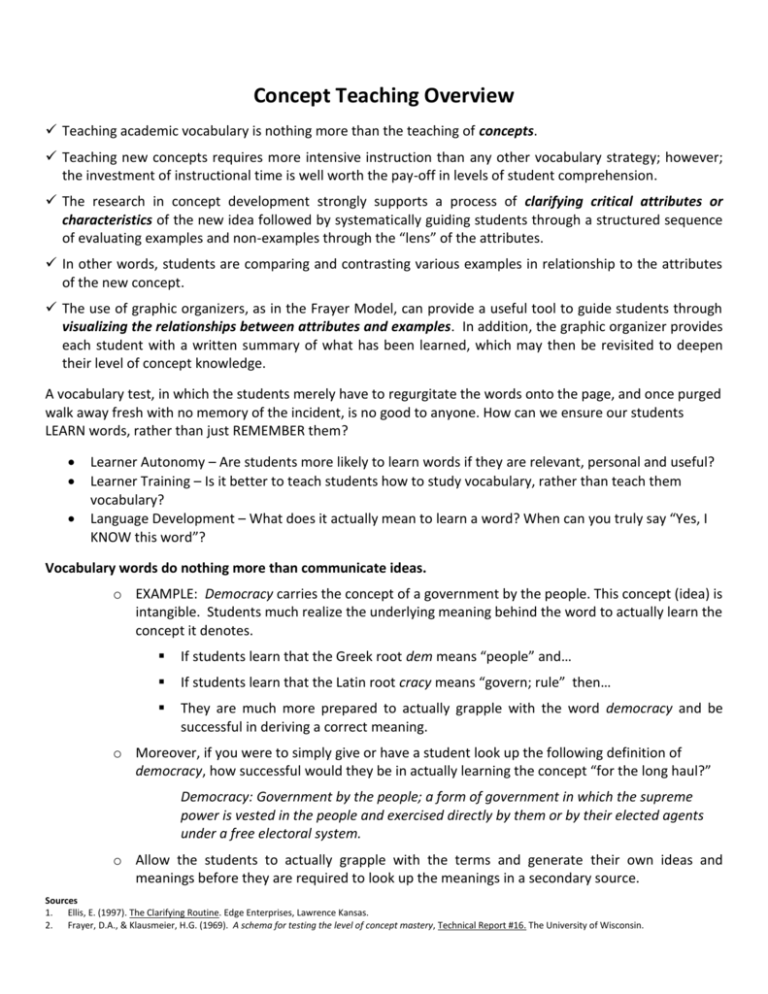
Concept Teaching Overview Teaching academic vocabulary is nothing more than the teaching of concepts. Teaching new concepts requires more intensive instruction than any other vocabulary strategy; however; the investment of instructional time is well worth the pay-off in levels of student comprehension. The research in concept development strongly supports a process of clarifying critical attributes or characteristics of the new idea followed by systematically guiding students through a structured sequence of evaluating examples and non-examples through the “lens” of the attributes. In other words, students are comparing and contrasting various examples in relationship to the attributes of the new concept. The use of graphic organizers, as in the Frayer Model, can provide a useful tool to guide students through visualizing the relationships between attributes and examples. In addition, the graphic organizer provides each student with a written summary of what has been learned, which may then be revisited to deepen their level of concept knowledge. A vocabulary test, in which the students merely have to regurgitate the words onto the page, and once purged walk away fresh with no memory of the incident, is no good to anyone. How can we ensure our students LEARN words, rather than just REMEMBER them? Learner Autonomy – Are students more likely to learn words if they are relevant, personal and useful? Learner Training – Is it better to teach students how to study vocabulary, rather than teach them vocabulary? Language Development – What does it actually mean to learn a word? When can you truly say “Yes, I KNOW this word”? Vocabulary words do nothing more than communicate ideas. o EXAMPLE: Democracy carries the concept of a government by the people. This concept (idea) is intangible. Students much realize the underlying meaning behind the word to actually learn the concept it denotes. If students learn that the Greek root dem means “people” and… If students learn that the Latin root cracy means “govern; rule” then… They are much more prepared to actually grapple with the word democracy and be successful in deriving a correct meaning. o Moreover, if you were to simply give or have a student look up the following definition of democracy, how successful would they be in actually learning the concept “for the long haul?” Democracy: Government by the people; a form of government in which the supreme power is vested in the people and exercised directly by them or by their elected agents under a free electoral system. o Allow the students to actually grapple with the terms and generate their own ideas and meanings before they are required to look up the meanings in a secondary source. Sources 1. Ellis, E. (1997). The Clarifying Routine. Edge Enterprises, Lawrence Kansas. 2. Frayer, D.A., & Klausmeier, H.G. (1969). A schema for testing the level of concept mastery, Technical Report #16. The University of Wisconsin.

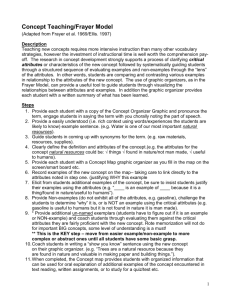




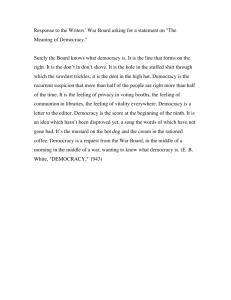
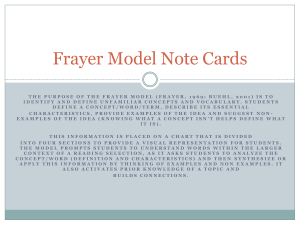

![“The Progress of invention is really a threat [to monarchy]. Whenever](http://s2.studylib.net/store/data/005328855_1-dcf2226918c1b7efad661cb19485529d-300x300.png)
